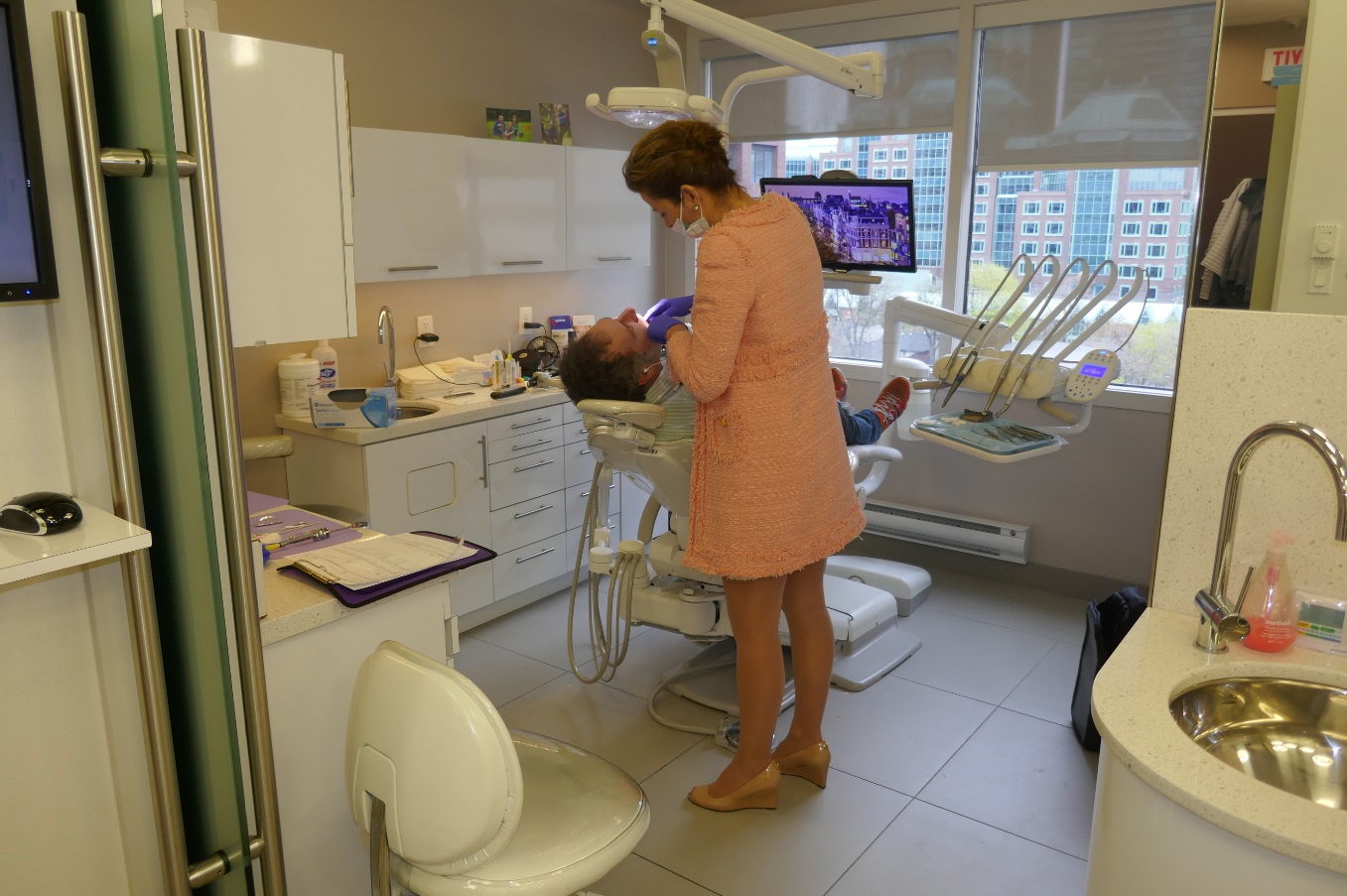Some Things You Should Tell Your Dentist
During your first visit to a dental clinic, when you meet your new dentist for the first time, he or she should transform into a mini health detective already at work on their next big case, your teeth. Dentists can gather a lot of clues all by themselves, just by looking in your mouth. But if they ask you questions when you’re sitting in the chair, well there are some things you really cannot lie about as they can easily check for themselves.
Generally speaking, your dentist won’t ask about your love-life like your hairdresser does, or about your driving habits like your mechanic does, nor will they pry into your private life like your personal doctor. But they do ask important questions about your medical history and possibly your diet, and they may ask about your lifestyle if they see you have mouth piercings. That’s good. It proves they are professionals who care about your overall health. If they’re asking odd questions, then you should probably give honest answers. There are some things your dentist should know.
Dentists and Medical History Forms
Nobody likes writing about themselves, or filling out medical forms filled with personal details. Why is all this information even necessary? You may wonder where all the data ends up, and what about identity theft? Don’t worry. At Archer Dental, all information you provide on your medical history questionnaire is kept strictly private, and is protected by doctor-patient confidentiality. It will not be shared with anyone outside our office without your permission. Every field on Archer Dental’s intake forms has been included for a reason as your information helps dentists better understand your over-all health.
Medical history forms at the dental office may request for info that doesn’t specifically relate to your mouth, but you have to trust the process, and understand that your dentist needs background data and especially medical details as they relate to your general health and any medications you’re using. Just about every medicine can have dental health implications, and certain health conditions also require notification; diabetes, leukemia, oral cancer, pancreatic cancer, heart disease, and kidney disease are all ailments that need to be disclosed to your dentist.
Diabetes, for example, increases risk of gum disease. Heart problems and digestive problems and medicines to remedy these conditions can also have dental related side-effects. Are you taking birth control pills? If you are taking birth control and your dentist gives you antibiotics, that medication can render your birth control ineffective. If you’re on a blood thinner and you need a tooth removed, a conversation about the medication you are taking is absolutely necessary, as you may experience excess bleeding following the dental surgery. Blood clotting can be affected by many conditions, such as liver disease. Medications, including aspirin and even some herbal preparations, can also interfere with normal blood clotting.

Vials of testosterone medication, Frank Rumpenhorst / dpa / AP file
Some modern pharmaceuticals have steroids which can reduce the effectiveness of your immune system. Patients who are using such remedies need to take preventive antibiotics before certain dental procedures are performed. For example, patients with an artificial heart valve may need to take an antibiotic prior to certain treatments to help prevent a serious infection from occurring. Are you on any pain medications? Do they make your mouth feel dry? Some medications cause dry mouth, which can increase your chances of getting a cavity as the drug restricts the flow of cleansing saliva in your mouth. If you tell you dentist this, you can have a conversation that could yield remedies for better long term care. It’s your responsibility to make sure your dentist is aware of all medical concerns before any treatments begin. Information about the medicines you are using is vital to your oral health.
When Dentists Ask About Your Life
After your first initial visit, let your dentist know whenever there is a change in your current health status. Examples of changes in your health status might include becoming pregnant, or starting any new medications, new allergies, or maybe increased smoking. It’s important to keep your medical record up to date so that your dentist can provide you with the best care possible. Make a point to bring it up before the session really begins as you can hardly talk them when they have their fingers in your mouth. But questions should get answers all the same.
There are even some foods that should be discussed. Are you passionate about your afternoon teas and morning coffees? Medical studies always say these beverages, in moderation, have positive effects on our body, but when it comes to our teeth they actually weaken and stain them at any level of consumption. Of course, if you’re eating too many sweets, or prefer synthetic foods or drink soda pop everyday, well this can have more of an effect on your oral health, and your mouth will likely require a deeper cleaning when you go to the dentist. Tell them your habits so they can tackle the problem immediately.
Tell Your Dentist about Strange Pains and Discomforts

One on one with dentist Dr Natalie Archer
Have you ever experienced discomfort in your teeth or gums, but it disappears after a few days, and so you forget to mention it to your dentist. This could be a big mistake. Its true you only visit the dentist a couple of times a year, and remembering things like that might require writing them down. But any mouth pain and even unusual sensitivities is certainly something worth mentioning. Make sure to point out strange sensitivity, odor, pain or any change in your mouth. Sometimes your oral health can be a caution-light blinking a warning about serious disease, or a related health issue, and other times it may be that your body’s battle with illness is affecting your oral health.
Are you Scared of the Dentist?
 If you are feeling particularly anxious, or scared, well this is also something else you should discuss with your oral health care providers. If they know you’re an anxious dental patient, they can prepare a calmer environment, and select sleep dentistry and laughing gas to really put you at ease. Sometimes dental patients can receive pain medication before major surgeries as well as afterwards during recovery.
If you are feeling particularly anxious, or scared, well this is also something else you should discuss with your oral health care providers. If they know you’re an anxious dental patient, they can prepare a calmer environment, and select sleep dentistry and laughing gas to really put you at ease. Sometimes dental patients can receive pain medication before major surgeries as well as afterwards during recovery.
Sometimes your dentist may wish to speak with your family doctor or medical specialist to get more details about your medical situation. If your dentist needs to consult with your doctor or another health-care provider, this will be discussed with you first. It is very important for your dentist to understand as much as possible about your past and current health condition. It also means that it is important for your dentist to take an initial complete medical history, and to keep it up-to-date by checking with you on a regular basis. As you can see, your medical health and your dental health are closely linked. You and your dentist are partners, working together to provide you with the best possible dental care.


